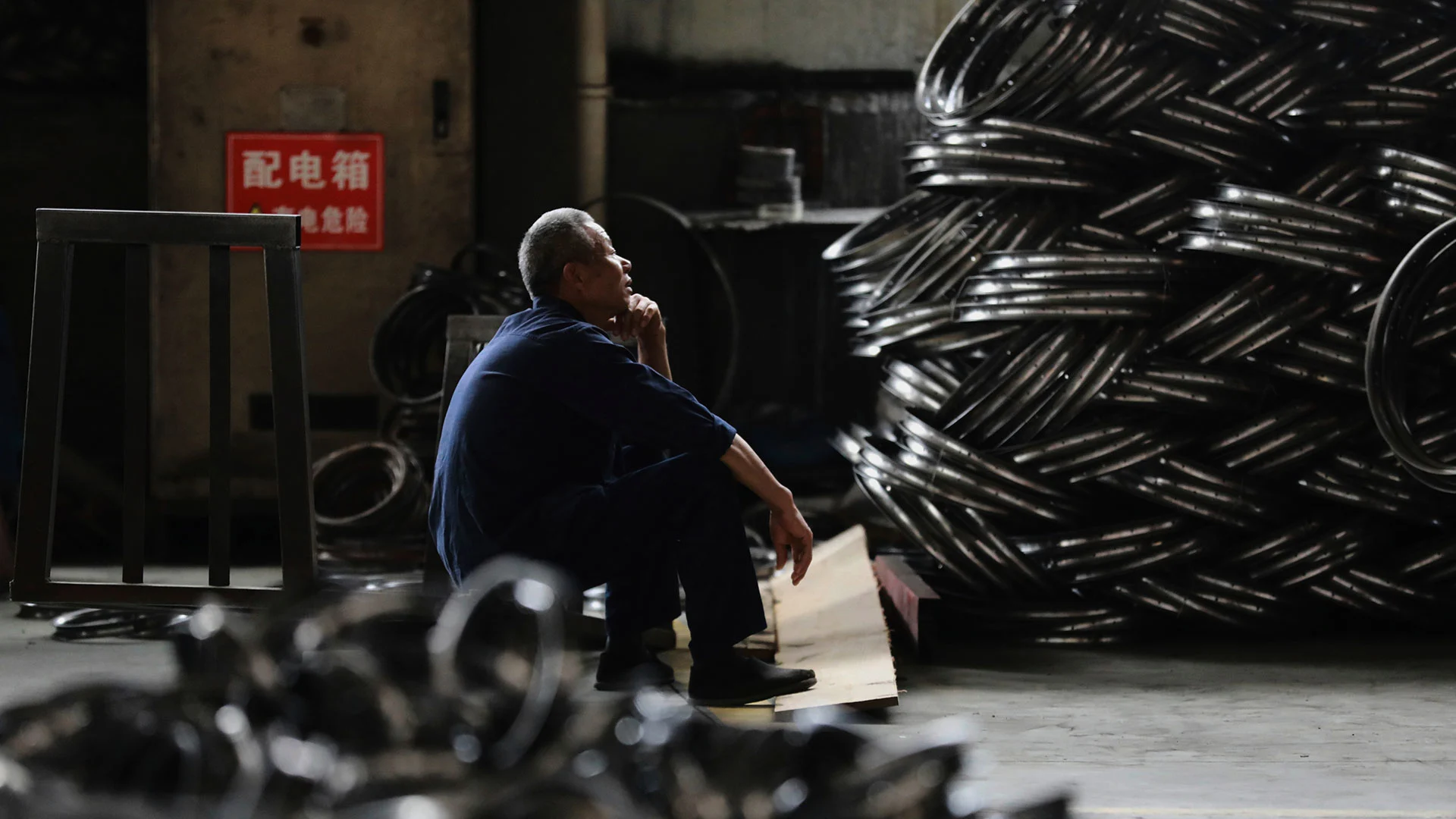
"China's factory activity shrank for a sixth straight month in September, the longest slump since 2019, an official report said Tuesday.The official manufacturing purchasing managers index, or PMI, improved to 49.8 from 49.4 in August. But it remained below the 50-cutoff level between contraction and expansion on a scale of 0 to 100. A private sector PMI survey by the credit research and rating startup RatingDog was more upbeat, with September's overall PMI rising to 51.2 from 50.5 in August."
""The September PMI reads from China offered a picture that looked less like a coherent growth engine and more like a car with one cylinder firing while another misfires," Stephen Innes of SPI Asset Management said in a commentaryCompanies are under pressure from price cutting amid rough competition, he said."Factories are moving more goods, but they're being forced to do it at thinner margins, like street vendors selling more bowls of noodles at half price just to keep the crowd coming," Innes said."
"China's official manufacturing PMIs first slipped back into contraction in April as trade friction with U.S. President Donald Trump's administration heated up after he took office.The two sides are still slowly working their way toward a broad trade agreement after exchanging threats of sky-high tariffs on each others' exports.A pause in steep U.S. tariff hikes on China has been extended until November, while a Sept. 19 phone call between Trump and Chinese leader Xi Jinping offered glimmers of hope for improving relations."
China's official manufacturing PMI was 49.8 in September, up from 49.4 but still below the 50 expansion threshold, marking a sixth consecutive month of contraction. A private-sector PMI from RatingDog rose to 51.2, signaling divergence between official and private measures. New orders and production improved month-on-month, yet domestic demand remains sluggish and trade tensions with the United States continue to create uncertainty. Companies face intense price competition and narrower profit margins despite higher volumes. The National Bureau of Statistics reported slight acceleration in output. U.S.-China tariff negotiations and a pause on steep tariff hikes until November have introduced tentative hope for calmer trade relations.
Read at Fast Company
Unable to calculate read time
Collection
[
|
...
]